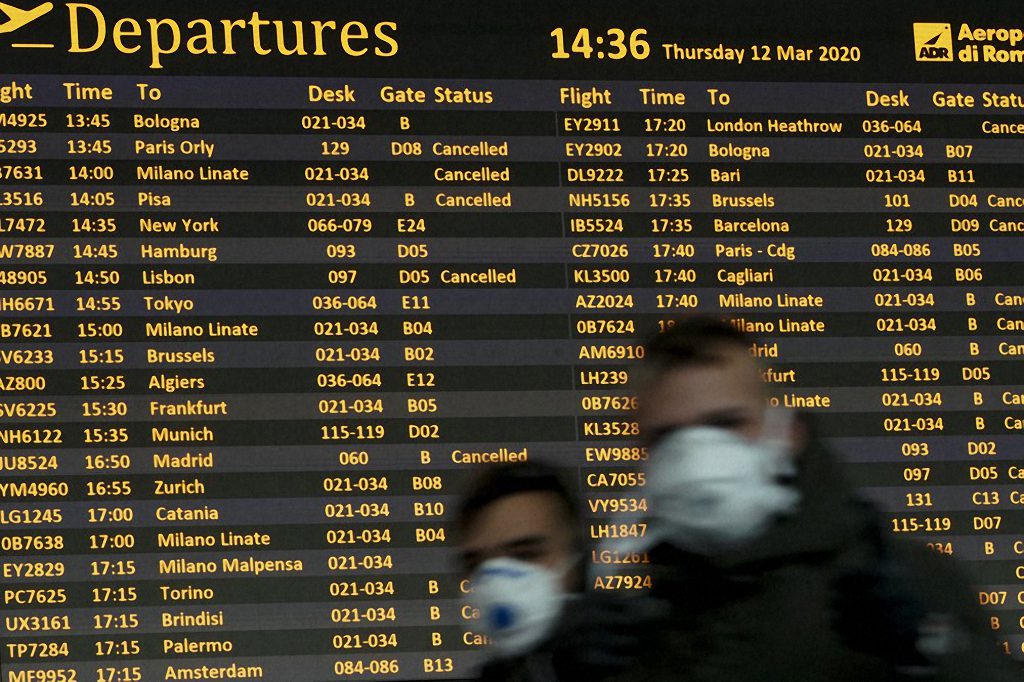Skift Take
For the travel industry, coronavirus has upended everything, kind of like how we expected climate change to — just much faster. Recovery, when it comes, will require taking the lessons from this thoroughly global disruption on board.
The travel industry has always been an optimistic one, underpinned by the belief that the world is small and international borders are but a minor inconvenience. If you can be on a flight to Mauritius in three hours, booked via an app on your phone, with frequent flyer miles your business travel earned you, why on earth would you stay home?
But for the past decade or so, it’s also been something of a sitting duck. Climate change has been coming, we’ve known that. But despite the talk of carbon offsets and tremendous plastic reduction PR, the travel industry has always been reluctant to admit that the very premise that it is based on — frictionless, consequence-free movement — is very likely at odds with the future that’s coming for all of us.
That’s a future when the world feels smaller, when extreme weather events impact our lives more often, when the resilience of our communities will start to feel more vital than the performance of the stock market. You could argue that humans will innovate their way out of that future, but a look at the complacency of our leaders (and science) suggests you’d be an optimist to do so. At the very least, we’re running out of time.
Get the Latest on Coronavirus and the Travel Industry on Skift’s Liveblog
In some ways, this disconnect isn’t entirely the travel industry’s fault. It’s been a macroeconomic-level delusion. And to be fair, there have been huge upsides to the interconnectivity brought by things like low-cost international travel and Airbnb and apps.
As Skift Founder and CEO Rafat Ali likes to say, “travel is the most progressive expression of human curiosity.” It makes us more understanding of others, and that’s no bad thing. But the ease with which we’ve become accustomed to doing all this — as well as relying on the global supply chains that can be so easily disrupted, as seen right now on your supermarket shelves — has also become a vulnerability.
Covering the travel industry in recent years has often felt like documenting a growth hangover. People just love to travel! The Chinese middle class is unstoppable! Overtourism is a good problem to have! International trips are going nowhere but up! Nothing can stop it!
As we’ve learned in the past couple weeks, however, some things actually can. And surprisingly quickly. As Skift’s Andrew Sheivachman pointed out, travel went “from overtourism to undertourism in a matter of weeks and the industry leadership acts like this is just a bump in the road for their business.”
The coronavirus has been characterized by some as a “black swan” event, a reference to the idea popularized by author Nassim Nicholas Taleb, that highly unpredictable, outlier events have the most extreme impact on the economy. Indeed, it’s rare that one story captures the coverage of an entire publication like Skift, let alone the entire world media’s attention for month’s at a time. Even 9/11 — which this has frequently been compared to in recent days — didn’t quite rise to the level of disrupting everything including airlines and cruise ships, the Italian coffee bar and the Chinese noodle stand.
As Skift’s journalists have hustled to cover the crisis from every angle and in every sector, the violent suddenness with which the virus took hold has been clear. The source of the disruption was unforeseeable, but it brought to the fore a future that climate change always promised to, whether we liked it or not.
It’s a future where we think more seriously about whether or not to get on a plane, and where crossing the world suddenly becomes something we do out of the utmost necessity, not just on a lark. It’s a world where governments may not even let us if we want to. What no one could have predicted is that it all happened in a matter of weeks, instead of a decade or so.
We at Skift believe in travel’s transformative power, but we have always tried to hold a mirror up to the industry, not just be a cheerleader for it. The travel industry is ground zero for the virus’ impact on the economy, and that’s certainly a disaster for the millions of jobs and economic value created by it. No one is arguing this is a good thing; on the contrary, it’s a tragedy.
Nevertheless, this represents a pivotal moment. As Henry Mance wrote in the Financial Times, “Coronavirus is not caused by climate change, but it wreaks the kind of disruption we might face in the future.” It is, perhaps, far too early to begin talking about recovery. But it doesn’t feel premature to say travel will never — should never — be the same.
The Daily Newsletter
Our daily coverage of the global travel industry. Written by editors and analysts from across Skift’s brands.
Have a confidential tip for Skift? Get in touch
Tags: climate change, coronavirus, tourism, travel
Photo credit: The departures board at Rome Leonardo da Vinci International Airport. Andrew Medichini / Associated Press
